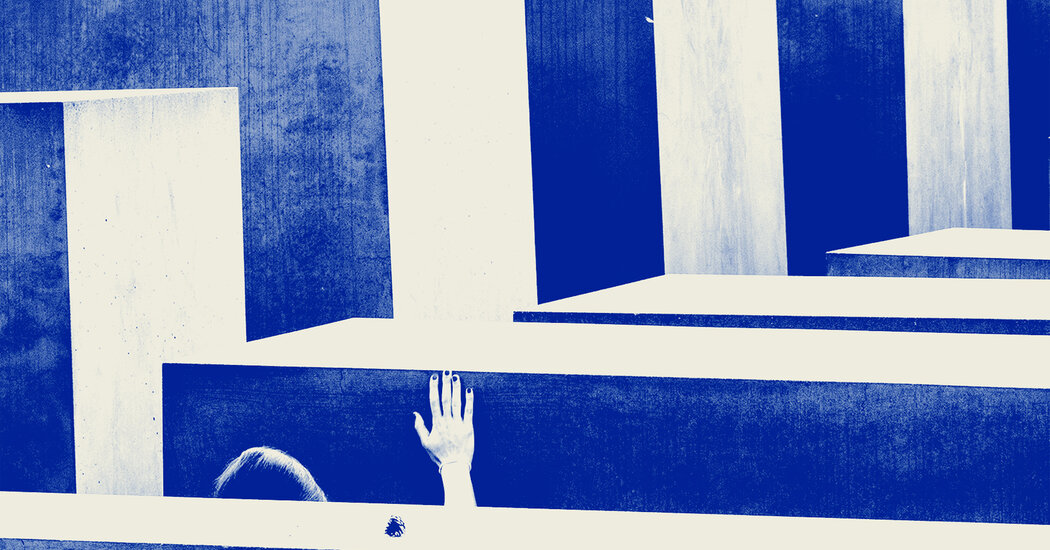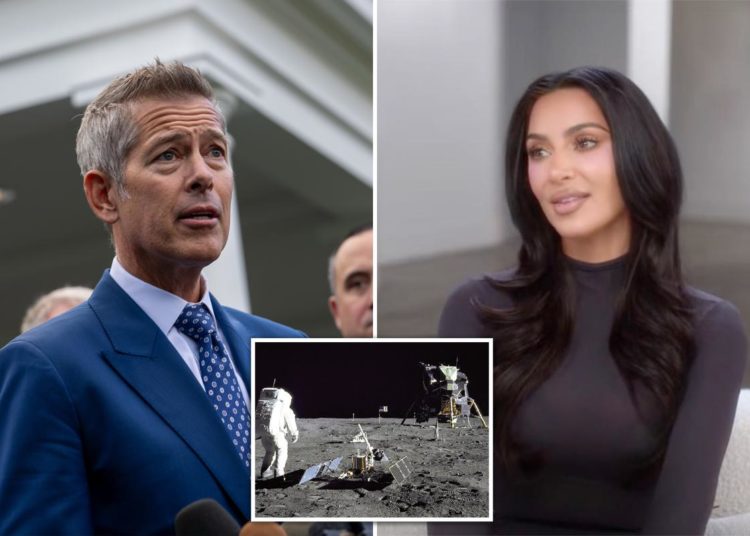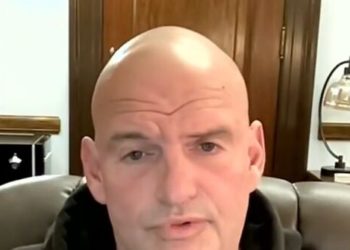In the wake of the Oct. 7, 2023, attacks in Israel, Prime Minister Benjamin Netanyahu told reporters, “This is the savagery that we only remember from the Nazi crimes in the Holocaust. Hamas are the new Nazis.” Many Israeli politicians echoed that, invoking the Holocaust to describe the terrorist attacks. In an interview with the Times Opinion columnist M. Gessen, the Columbia University professor Marianne Hirsch argues that the trauma and memory of the Holocaust are being misused and makes a case for how it should be taught going forward.
Below is a transcript of an episode of “The Opinions.” We recommend listening to it in its original form for the full effect. You can do so using the player above or on the NYTimes app, Apple, Spotify, Amazon Music, YouTube, iHeartRadio or wherever you get your podcasts.
The transcript has been lightly edited for length and clarity.
M. Gessen: I’m M. Gessen, a columnist for The New York Times.
Throughout the war in Gaza, Israeli leaders and their supporters in the United States have invoked the Holocaust to justify their actions.
Audio clip of Prime Minister Netanyahu: This is the savagery of that we only remember from the Nazi crimes in the Holocaust. Hamas are the new Nazis.
Some scholars of the Holocaust — people who have spent their professional lives keeping the memory of the catastrophe alive — are worried. They worry that their work has been repurposed as war propaganda and as justification for committing a genocide.
My friend Marianne Hirsch is one of those scholars. She’s a professor emerita of English at Columbia University. She’s known for her research on how descendants of survivors think about the Holocaust. Up until this year, she was teaching classes on memory and war. But this year, that became untenable. It’s a loss for her students and for the field. Professor Hirsch’s understanding of how we remember it and teach about the Holocaust is key to understanding the way we think about what Israel has done in Gaza. It’s helped me make sense of what’s happening. I asked her to join me to talk about this.
Marianne, thank you for being here.
Marianne Hirsch: Thank you so much for inviting me.
Gessen: So let’s start with how you came to Holocaust studies.
Hirsch: It was late in my career. I was the daughter of survivors of the Romanian Holocaust. My parents were in a ghetto; they were married in a ghetto. But the last thing I was interested in studying was their history — or even to study the region where they came from. Even though I was hearing their stories every single day, it was too much about the past. I was interested in the avant-garde, in the future. I was interested in feminism and movements for social change. But I got caught in the mid-1980s with the publication of Art Spiegelman’s “Maus” and with the publication of Toni Morrison’s novel “Beloved.”
So here was the curiosity about a moment in the past that was really not in the past, that was continuing in the present, but from a distance, from a subsequent generation or from witnesses who are vicarious, who are not really there. And I recognized myself in these people: somehow the lack of knowledge, but the ubiquity of the feelings and the sentiments. Somehow it became clear to me that I remembered moments from my parents’ narratives, from my parents’ histories, more vividly than I remembered some of my own childhood memories.
My own old childhood memories were somehow evacuated by the power of these memories that were not really memories because they were about experiences that I had not really lived through myself. So that was the moment. Obviously, not just for me; it was a moment when people were very, very concerned about the death of survivors and the disappearance of witnesses. It was also a moment of identity politics in U.S. academia.
So everybody had an identity and we really thought very carefully — especially in feminism — about African American experiences or Latinx experiences, and somehow Jewish stories were not part of the curriculum. So I started talking to other colleagues in my field and realized that a number of us were actually children of Holocaust survivors, except that we had never really known each other from that perspective. So that’s really how it started.
Gessen: You coined this term “postmemory” to describe how the children of survivors think about the Holocaust, and you say that traumatic memories are passed down so powerfully and so emotionally that the children of survivors remember them stronger than their own memories. As you said, your own childhood memories were forced out by your parents’ stories. Can you explain this idea of postmemory?
Hirsch: Well, it seems really counterintuitive that we can actually feel as though we remember things that we haven’t ourselves experienced. But there’s something about the transmission through the kinds of stories that I was just talking about that carry traumatic and extremely powerful experiences of the past into the present, and that make us feel as though we were actually there. I think the way postmemories work is through identification. It could have been me. So a lot of my dreams were being chased or having knocks on the door, or maybe ——
Gessen: Mine, too.
Hirsh: Yours, too. Right, exactly. And many people can really relate to this, not just through the Holocaust. It was really my entry point. But as I mentioned, Toni Morrison’s novel “Beloved,” I felt at the time, the most powerful Holocaust novel written to that date. But of course it wasn’t about that.
I focused on the daughter who was born into freedom rather than the mother who had lived through slavery. And that daughter really needed to know what happened in the plantation that her mother escaped from. So that curiosity, that obsession with wanting to know the fragmentariness, the hauntedness, the ghosts that “Beloved” brings up so well — that’s very much part of this phenomenon of secondary or vicarious memory that I try to describe. And, as I said, it works through identification.
But it’s a concept that for me has evolved because, even though I situated it in the family to start with, being, really, coming out of my own experience in some of these readings, it really works through mediation.
So the images that are particularly powerful are the ones that we also see in the media. Films can structure a generational structure of remembrance that’s not only situated in the family. It also facilitates the entry for other people who think “It could have been me” or “I could have been that daughter” or “I could have been that mother.” So the “It could have been me” is mediated through publicly available images.
Gessen: I want to come back a little bit to what you were saying about “Beloved,” because you were doing something that’s actually quite controversial. It was very logical, but you were comparing. There is a very strongly articulated position that the Holocaust should never be compared to anything. I’ve been accused of relativizing the Holocaust, and there’s another equally strongly articulated position that the Holocaust has to be placed in a chronology of genocides. Can I ask you to talk about that?
Hirsch: Well, I couldn’t agree with you more about the importance of analogy, and yes, I think this injunction, the Holocaust shouldn’t be compared because it will be relativized, is part of this argument of the uniqueness of this crime. For me, I think the relationality, the relationships between all these different histories — not just genocide histories, but histories of victimization, of othering, of inequality — each of these genocides and each of these experiences is actually unique. They’re really not the same at all. But they are connected and therefore also need to be compared.
So not comparing them or not seeing them in relationship to each other can be extremely risky — as I think we’ve seen with the Holocaust — because this uniqueness argument is an argument of exceptionalism. This is the most exceptional crime of all crimes, which lends it a very particular status. And there’s an outsize influence of the Holocaust that then obscures other histories and also obscures what is happening right now: the genocide in Gaza, which the exceptionalism of the Holocaust has fostered denial of other genocides. And I think that creates a real crisis if victims of genocide perpetrate genocide and one can deny that. I think we’re in a moment of real crisis.
Gessen: So what do you think about how the Holocaust should be taught?
Hirsch: Let me first just say: Why do so many school districts have mandated curricula on the Holocaust in this country and really all over the world? And why are we building new Holocaust museums right now? What is the thinking behind that if it is the crime of all crimes and if the Holocaust teaches students the effects of mass violence and dehumanization? I think the idea might be that this could serve as an inoculation against further violence like this — that if we truly understand how much people can suffer, we will try to stop suffering. So the “never again for anyone” idea — maybe that’s what students are supposed to be learning.
But I think we need to go beyond teaching the Holocaust through identification and even empathy. I mean, of course we need to teach empathy; we need to foster empathy. But maybe not so much identification. Perhaps we need a little more distance — saying, you know, it could have been me, but it was not me. This is the past. We need to leave them in the past. We have some distance now; we can think about them, and we can think about what we can do in the world today, rather than treating them as if they are eternally continuing and re-traumatizing generation after generation.
And because personal identification and postmemory are so powerful, they can also be easily misused. So I think the question is how to prevent that kind of misuse — that kind of rampant contagion of fear that is such a part of how the Holocaust lives on in memory. One way is to really create ways of thinking about it as the past — to contextualize it within other histories and relate it to other historical phenomena that it’s truly part of. And one historical phenomenon that is part of the Holocaust is actually the formation of the state of Israel and the Nakba — the expulsion of Palestinians. So I think when we teach the Holocaust now, that has to be somehow part of the history. Our interrelation of Holocaust memory and Nakba memory really has to be taken into account.
Gessen: Do you think that’s possible in an American university today?
Hirsch: I think we have a crisis in universities. I think there are many ways in which universities right now are preventing genuine teaching, learning, freedom of expression and critical thinking, because there are certain things that are disallowed.
First of all, the way universities — including my own, Columbia — have conceded that they are hotbeds of antisemitism, and that Jewish students are suffering, has fostered a sense of Jewish victimization. That feeling of victimization prevents us from making the kinds of connections I’ve just been talking about.
At this moment, when comparison is often seen as relativization, it’s probably very difficult to do this work. Because if we want to speak about Israel as one of the consequences of the Holocaust — not the only consequence, and not solely a consequence of the Holocaust — and if we are critical of how the state of Israel has evolved and is acting in the present and toward the future, then we can easily be seen as fomenting antisemitism. And that conflation kills thinking. It creates fear — among faculty and among students alike.
Gessen: And you are speaking from experience here: You have been at Columbia for about 20 years and, until recently, you were teaching a memory seminar.
Hirsch: Yes, and I’m officially retired, but I’ve agreed to keep teaching one course a year, which I’ve kind of suspended for the moment.
Gessen: Why?
Hirsch: Well, I think the atmosphere I’ve just described is part of it. It’s very, very difficult to create an atmosphere of trust in a classroom — and you know how precious that is. You get a group of students from many different backgrounds, who don’t know each other, who haven’t learned the same things, and you try to build a space where you can float ideas, maybe be wrong, make mistakes, and learn from each other. Often it doesn’t go well, but you keep trying.
I’ve spent my career teaching very difficult subjects. My mission has been to find ways to actually talk about these difficult subjects — ones that often touch students and touch me very personally — but still talk about them with enough reflection to learn something, both about history and about ourselves, and how we process this kind of difficult knowledge.
I think that’s very hard to do now because there’s so much that’s disallowed, and that’s confusing. For example, the adoption in many universities of the I.H.R.A. definition of antisemitism — which includes several examples that label certain criticisms or comparisons involving Israel as antisemitic — makes it very difficult to bring certain topics into a syllabus or into the classroom without being open to complaints about discrimination or antisemitism.
Gessen: And you’ve had that happen to you, right?
Hirsch: Yes, I had that happen in a course I taught in the fall of 2023. We spent quite a bit of time in that class talking about images of atrocities. So, of course, the images coming out of Gaza were very much part of the conversation. What I tried to do was lay the groundwork for students to ask the questions they wanted to ask about it.
One thing I did was send the class an op-ed from The New York Times by Lydia Polgreen about a photograph — we were talking about images — and it showed dead babies in Gaza, wrapped in white shrouds. There was one student who was very offended by that, and by the implication that Israel might be at fault — that it wasn’t solely Hamas’s fault. We had long exchanges about it, both written correspondence and in-person conversations. She and I spoke as fellow Jews, as people with close family in Israel. And yet, eight months later, she accused me of discrimination and filed a formal complaint against me.
It was very painful — and also, in some ways, an absurd charge. But what it showed me is how easily we can lose critical thinking in this conflation between criticism of the state of Israel and antisemitism.
That’s not why I’ve suspended my teaching — it wasn’t that particular incident — but it’s part of the atmosphere. You don’t need to adopt the I.H.R.A. definition to create a climate where it’s very difficult to teach certain subjects. You’ve written a lot about Hannah Arendt, and I regularly teach her work. But you know, she was very critical of Israel — she almost predicted what this militaristic state would become if Israel won the war of 1948. That’s an essay I’ve written about and taught before. Could I teach it now? I really don’t know.
Gessen: And if you could teach a course now in an ideal university, what would that course be?
Hirsch: Well, my main focus right now is to write and think against militarism and the idea of the inevitability of war. This notion of inevitable cycles of violence — of trauma that can never be healed and that continually leads to more violence — is something I find deeply troubling. I think that’s one of the problems with the way the Holocaust is often invoked: its supposed unhealability, the sense that it must perpetuate itself endlessly. So how do we interrupt that? That’s really what I want to think about.
I also feel that, in some ways, I’d like to go back and reteach some of my earlier courses, because I would approach them differently now. There hasn’t been enough about Palestine. For instance, I once taught a course called The Voice of the Witness. We studied Holocaust testimony, testimonies from the South African Truth and Reconciliation Commission and others — but Palestine wasn’t included. I now feel that was a real failure on my part, an expression of my own inability to figure out how to weave together these histories that are so intricately connected.
If I could ask you something, since we’re sitting here across from each other, one of the events that followed the Oct. 7 attacks and the beginning of the war was an essay you wrote in The New Yorker about Holocaust memory and its misuses in Europe. That’s where you made your now well-known analogy: You said Gaza is not an open-air prison — what’s an open-air prison? — Gaza is a ghetto. You compared it to the Warsaw ghetto and wrote something that was so memorable and devastating: “The ghetto is being liquidated.” How are you thinking about this now?
Gessen: It’s still being liquidated. As you know, we were talking about that essay while I was writing it. Soon afterward, I went to Germany, which provided much of the reporting material for that piece. I went to Germany a second time — supposedly to receive the Hannah Arendt Prize for political thinking — which was almost taken away from me because I made that comparison.
It was interesting, though, because many of the people who decided to debate me in Germany — since it turned into a big public scandal — kept asking how I could possibly dare to make that comparison. Reporters would insist that obviously Gaza wasn’t a ghetto, and obviously it wasn’t being liquidated. Those were fascinating conversations, because I realized just how little many of them actually knew. I think the most important thing they didn’t understand — and that we often fail to understand — is that genocide is a process.
Lately, I’ve been reporting a series on international justice and war crimes, and I realized that, legally, one of the key distinctions between genocide and crimes against humanity is precisely this: Genocide is a process. Crimes against humanity occur when large numbers of people are killed — or when civilians are intentionally targeted, or when there’s blatant disregard for human life. But genocide is different: It unfolds over time. It begins with setting the conditions for mass killing — with propaganda, with creating a climate in which many people can be killed — and then with gradually eliminating the conditions for life itself.
So starvation is very much a part of this genocide. Listening to you today, I was also thinking about this idea of genocide as a process — and how uncanny it feels now to look back at that early writing, my own and others’, that used the word “genocide” long before many people were ready to see that, yes, this is indeed what’s unfolding. And maybe that’s part of the nature of this phenomenon — that it reveals itself over time.
So if you could have a say in how this moment should be remembered — how it can be remembered — what would you imagine?
Hirsch: I’m very sensitive to the fact that trauma is happening right now — people are being severely traumatized, children are being traumatized. And, of course, I can’t tell Palestinians how to construct their memory, or what kinds of memory institutions will exist, but there will be some. What I hope is that the kinds of solidarity networks being built right now — the activism, the efforts to make space for a Palestinian story, and to imagine Palestinian life in the future — will become part of that memory. A memory of solidarity, not only a memory of devastation.
Gessen: Thank you so much for having this conversation with me.
Hirsch: Thank you so much for inviting me.
Thoughts? Email us at [email protected].
This episode of “The Opinions” was produced by Jillian Weinberger. It was edited by Kaari Pitkin and Alison Bruzek. Mixing by Carole Sabouraud. Original music by Sonia Herrero and Carole Sabouraud. Fact-checking by Ashley Braun and Mary Marge Locker. Audience strategy by Shannon Busta and Kristina Samulewski. The director of Opinion Audio is Annie-Rose Strasser.
The Times is committed to publishing a diversity of letters to the editor. We’d like to hear what you think about this or any of our articles. Here are some tips. And here’s our email: [email protected].
Follow the New York Times Opinion section on Facebook, Instagram, TikTok, Bluesky, WhatsApp and Threads.
M. Gessen is an Opinion columnist for The Times. They won a George Polk Award for opinion writing in 2024. They are the author of 11 books, including “The Future Is History: How Totalitarianism Reclaimed Russia,” which won the National Book Award in 2017.
The post We Need to Rethink How We Think About the Holocaust appeared first on New York Times.




